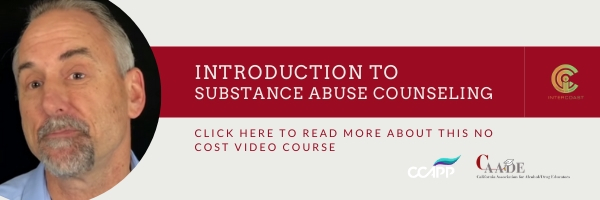Estimated reading time: 6 minutes
Table of contents
Are you looking for a career change? Do you want to help people struggling with addiction diseases? Are you passionate about mental health? Becoming a substance abuse professional could be the right move for you.
Becoming an Alcohol and Drug Counselor is a big decision that comes with many steps, but in the end, you’ll have a fulfilling career helping others.
You could go in the substance use disorder field in a few different directions, so let’s break down your options. We’ll also look at the process of becoming an entry-level Alcohol and Drug Counselor.
All About Being a Substance Use Disorder Counselor
It’s never too late to start a new career, and substance use disorder counselors are considered a career in demand. The nation needs more people who have the right skills and empathy to help those struggling with addiction take their lives back.
Becoming an alcohol and drug counselor is hard work, but it’s also one of the most fulfilling career paths you could take. You get a front-row seat to watch people get back on their feet and beat a life-threatening disease.
You can begin a career in substance use disorder counseling no matter your previous career path. Even if your former job is completely unrelated to substance abuse, you can become successful in your new field and make a difference.
What Is an Alcohol and Drug Counselor?
An alcohol and drug counselor’s goal is to provide treatment to individuals struggling with drug or alcohol addictions.
You will be a source of support to someone trying to reshape their life. You’ll have the opportunity to help them with the treatment plan prepared for the client. Additionally, as an alcohol and drug counselor, you may have a chance to educate others on addiction dangers. You will spread a positive message about living a healthy lifestyle to the community.
To be successful in the substance use disorder field, you need to be empathetic and patient and possess strong communication skills. Dealing with addictions every single day is taxing, so you need to have a resilient personality.
You also need to be willing to continue learning as more knowledge about this disease is being uncovered on an ongoing basis.
The U.S. Bureau of Labor Statistics, as of December 2020, reports that substance use disorder counseling jobs are projected to grow by 25 percent in the next decade, much faster than most industries. As more people seek help for addictions, job opportunities will continue to arise.
The job opportunities are exploding, so there has never been a better time to become an alcohol and drug counselor, also known as a substance use disorder counselor.
Benefits of Becoming an Alcohol and Drug Counselor
Along with helping others, there are many personal benefits associated with becoming a substance use disorder professional. Let’s break down the reasons why you might want to go into this field.
Alcohol and Drug Counselor Job Benefits:
- It’s a growing field with ample job opportunities.
- You can do this job nearly anywhere you live.
- You can work in many different settings.
- You may have the opportunity to work closely with other health specialists, such as psychologists and psychiatric nurses.
- You get to do something you’re passionate about
- You’re helping others.
Alcohol and Drug Counseling Jobs
Depending on your education level, there are different jobs you can get in the field. The most common entry-level position is an intake coordinator or alcohol and drug counselor. You will have the opportunity to help others overcome their addiction and succeed in their life.
As an alcohol and drug counselor, you can work in many different settings, including:
- Treatment centers and clinics
- Residential treatment centers
- Rehab centers
- Prisons and juvenile detention centers
- Government agencies
Step-by-Step Guide To Becoming an Entry-level Alcohol and Drug Counselor
Job opportunities for alcohol and drug counselors are growing daily, so there’s no reason to put off your career change. Get started on your new career path today.
Step One: Find Out Your State’s Certification Requirements
Different states have different requirements for their substance use disorder counselors, so take some time to research the state’s rules where you’ll be working. Most require passing exams, logging a certain amount of supervised hours engaging in clinical experiences, and potentially a Master’s degree.
Find out your state’s requirements so that you can choose the best program that meets the requirements you need.
Step Two: Learn From Professionals
The best way to learn about a new career path is to speak directly to people already in the field. Contact local treatment centers and ask to set up appointments with alcohol and drug counselors so you can hear about their experiences.
Learn about their day-to-day activities, including tasks you may not think about, like paperwork and administrative duties. Evaluating the different job settings that alcohol and drug counselors can work in will also give you a better idea of which direction you want to go into when you enter the workforce.
Step Three: Complete Your Education
Most employers look for specialists with a Master’s degree these days, so it’s crucial to now map out your education. If you’re brand new to the field, you can start with an online degree or certificate program to gain the requirements needed to get an entry-level job or continue your education.
To effectively treat alcohol and drug abuse, explore our associate’s degree program for residents and those who want to work in California for the knowledge and skills needed. You’ll develop the technical skills, interpersonal communication tactics, and professional attitude you need to succeed.
Attend a program that is approved by one of the certifying bodies in California. Our programs are the perfect springboard for your future career as an alcohol and drug counselor.
Step Four: Complete Clinical Hours
Most Alcohol and Drug Counseling programs require the completion of clinical internship hours before entering the field. This is an excellent opportunity to practice your skills under the supervision of someone more experienced than you.
Different states and programs have additional requirements for clinical hours. Make sure you research the requirements you need to meet so you can stay on track.
Step Five: Continuing Education
Once you complete your education and clinical hours and enter the workforce, you’ll have to renew your certification every year. This is usually done by taking a continuing education course, which can be done virtually in most cases. Check the rules in your state to verify what continuing education courses you’ll need to take.
Is the field of Substance Use Disorder Counseling Right for You?
Most people change their careers three to seven times in their adult life. If you’re looking to switch to a purpose-driven and exciting career, becoming an addiction specialist could be right for you.
However, it’s important to note that these are not easy jobs. You’ll be dealing with people at some of their lowest points, which can take an emotional toll. Most substance use disorder counselors work odd hours to accommodate their clients. Some are required to be on call and provide assistance at a moment’s notice.
Despite the challenges, working in the field of alcohol and drug counseling is still considered a very rewarding career. Most have reported extreme satisfaction and fulfillment in their careers.
There are many other benefits to becoming an addiction specialist, including the chance to learn every day and grow as a person.
Apply To Our Drug and Alcohol Counseling Studies Program Today
If you’re ready to get started on the path to becoming an Alcohol and Drug Counselor, apply for our program today. We offer tremendous flexibility with our online courses.
You’ll graduate with everything you need to succeed in your new career. If you need financial assistance, there is financial aid available for those who qualify.
Apply online today and get started in your brand new career. For more education and professional tips, check out the rest of our blog, or contact us.


